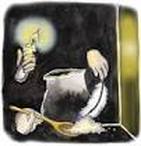 A different spin perhaps to accompany our search for chametz. I wish you a kosheren and freilichen Pesach. A man was walking home late one night when he saw the Mulla Nasrudin searching under a street light on hands and knees for something on the ground. "Mulla, what have you lost?" he asked. "The key to my house," Nasrudin said. "I'll help you look," the man said. Soon, both men were down on their knees, looking for the key. After a number of minutes, the man asked, "Where exactly did you drop it?" Nasrudin waved his arm back toward the darkness. "Over there, in my house." The first man jumped up. "Then why are you looking for it here?" "Because there is more light here than inside my house." ************ Reb Levi Yitzchak of Berditchev ztz"l used to wish everyone "a kosheren Purim" and a "freiliche Pesach". Of course everyone else usually says the opposite: "a freiliche Purim- a happy Purim" and "a kosheren Pessach-a kosher Pessach". Someone asked Reb Levi Yitzchak to explain why was he reversing the blessings? And so he explained: "everyone knows that on Purim you have to be happy and to be sure we are even obligated to get drunk, but in the midst of the Purim festivities someone might forget that Purim also has to be kosher" - hence he would wish all "a kosheren Purim; "Pesach on the other hand, everyone is so busy cleaning and getting rid of their 'chametz', which is a very strict mitzvah in the Torah, and in the process some may forget the mitzvah of "v'samachtah b'chagechga" - you shall rejoice in your holiday - hence he would wish everyone a "freilichen Pessach". So ...let's bless one another with "A KOSHEREN UN FREILICHEN PESACH!" ************ Please consider offering a tax deductible donation to support this project and the work of DC's Jewish Renewal community Minyan Oneg Shabbat. Thank you.
0 Comments
A special treat - a different musical setting for Eliyau HaNavi Reb Levi Yitzchak of Berditchev tz"l used to wish everyone "a kosheren Purim" and a "freiliche Pesach". Of course everyone else usually says the opposite: "a freiliche Purim- a happy Purim" and "a kosheren Pessach-a kosher Pessach". Of course someone asked him to explain why was he reversing the blessings? And so he explained: '"Everyone knows that on Purim you have to be happy and to be sure we are even obligated to get drunk, but in the midst of the Purim festivities someone might forget that Purim also has to be kosher - hence he would wish all 'a kosheren Purim'; Pesach on the other hand, everyone is so busy cleaning and getting rid of their 'chametz', which is a very strict mitzvah in the Torah, and in the process some may forget the mitzvah of 'v'samachtah b'chagechga' - you shall rejoice in your holiday - hence he would wish everyone a "freilichen Pessach". So ...let's bless one another with "A KOSHEREN UN FREILICHEN PESACH!"
********************* Please consider offering a tax deductible donation to support this project and the work of DC's Jewish Renewal community Minyan Oneg Shabbat. Thank you 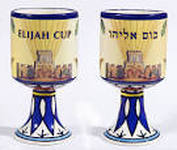 With Passover quickly approaching, it seems like a good time for an Elijah story. This is a well known one that I made some minor edits to. Do you have a story or poem that you are planning on telling at your seder? If yes, please share. Once in a long ago faraway place, there lived a man who was old, blind, penniless, and childless. Even though there were so many troubles in his life, he was able to get by with joy in his heart, for he had the love of a sweet and kind wife. They had so little, but they were rich in the love they shared for each other. And whatever little they had, they would gladly share with others. One day the man just needed the time and space to think about things. He never complained, but he needed to go somewhere and reflect on his life. He made his way down to the river bank and began to think of all that had happened to him and how things could have been different. He was lost in thought when suddenly he heard something in the distance. It was the tap, tap, tap think of a cane coming closer and closer. There was the rustling of a long satin cloak. He smelled an aroma that reminded him of scents so sweet, they might have been in the Garden of Eden. Someone came and sat beside him, saying "Do you know who I am?" The old man thought of the sounds and the scent. "Are you... You must be Elijah the prophet!" "Yes, you are right. I am Elijah, and I have been sent here for a very special reason. God has looked here and has seen your suffering. Yet you do not complain; you are still grateful for life, and you and your dear wife share much joy. And, too, you are always ready to share with those less fortunate than yourselves. So I have been sent here to bring you a message. You will be granted a wish! What shall it be? What is it that you want?" The old man did not move. He stayed very still, very quiet, thinking. What wish should he make? What did he really want? Should he wish for his sight? His youth? Money? Dare he wish for a child? Try as he might, he just couldn't make up his mind. Finally Elijah spoke again. "I can see that this is a difficult decision, one not easily made. So why not think about it for a while? Go home and consider what you will do. And then I will meet you here tomorrow, same time and same place. You can tell me then what you will wish." Then the old man heard the rustling of the long satin cloak as Elijah rose to go. He heard the tap, tap, tapping of the cane going off into the distance. But the smell, like all the scents in the Garden of Eden... that scent lingered long after. The old man stay by the river, listening to the water gently flowing by. After a while the old man slowly made his way back home. "Wife! Beloved wife! Come and hear of my adventure!" Call the old man as he entered their house. And he told his wife the whole story. When he got to the end of his tale, he asked, "Please help me. What one wish can I make?" "Do not worry my wonderful husband. All will be for the best. For now, it is time for dinner. Sit down, have some soup and good bread. After dinner, we can rest and tell each other stories. Go to sleep tonight and have some sweet dreams, and tomorrow we will decide what you should say." And that is exactly what the loving couple did. The man had the most beautiful dreams all night long, and in the morning, after breakfast, his wife whispered something in his ear. "Oh, my sweet wife! What a treasure I have in you! That is exactly the right wish. Now, if only I can remember!" Repeating the wish to himself, the old man left his house and made his way slowly back to his place by the river and began to wait. And he waited and waited, listening for the sounds that he had heard the day before. Soon enough, the old man heard it: the tap, tap, tapping of a cane coming closer and closer. There was the rustling of a long satin cloak, and then, finally, there was yhr smell like every scent in all of the Garden of Eden. And Elijah the Prophet came and sat down next to the old man. "Shalom aleichem.” “Aleichem shalom.” "Well now it is time. I can grant only one wish for you. What will that be?" What should he wish for? A child? Money? His sight? His youth? His health? The old man hesitated for a moment. He took a deep breath, and he began: "May I live...see the day.. when my child.. will eat.. from a golden plate!" Elijah threw back his head and began to laugh and laugh. "I can see that you've managed to get all of your wishes into one wish! I'll bet that God is enjoying this just as much as I am. And I am certain that God will see to it that every part of your beautiful wish is granted." For a moment, all was still and silent. Then the old man heard the rustling of the long satin cloak and the tap, tap, tapping of the cane going off into the distance. But the smell, like every scent in the Garden of Eden, that sweet lingered long into the afternoon... And it has been told that the old man and his sweet wife and their lovely child lived a peaceful and joy-filled life together for many, many years. So may it be for us all. Amen. ********************* Story told by Cherie Karo Schwartz in her wonderful book Circle Spinning. From her notes, Pg 28: Adaptation of folktale from the Israel Folktale Archives. English version in Gates to the New City, edited by Howard Schwartz. ********************* Reb Levi Yitzchak of Berditchev tz"l used to wish everyone "a kosheren Purim" and a "freiliche Pesach". Of course everyone else usually says the opposite: "a freiliche Purim- a happy Purim" and "a kosheren Pessach-a kosher Pessach". Of course someone asked him to explain why was he reversing the blessings? And so he explained: '"Everyone knows that on Purim you have to be happy and to be sure we are even obligated to get drunk, but in the midst of the Purim festivities someone might forget that Purim also has to be kosher - hence he would wish all 'a kosheren Purim'; Pesach on the other hand, everyone is so busy cleaning and getting rid of their 'chametz', which is a very strict mitzvah in the Torah, and in the process some may forget the mitzvah of 'v'samachtah b'chagechga' - you shall rejoice in your holiday - hence he would wish everyone a "freilichen Pessach". So ...let's bless one another with "A KOSHEREN UN FREILICHEN PESACH!" ********************* Please consider offering a tax deductible donation to support this project and the work of DC's Jewish Renewal community Minyan Oneg Shabbat. Thank you.  It was a few days before Pesach. Everybody in town, including the Brisker Rav, Rabbi Yosef Dov Seloveitchik, was preparing for the holiday. Not a crumb of chametz could be found anywhere. That evening, a stranger knocked on the Brisker Rav’s door. “I need to ask the rabbi a question. Am I allowed to use milk instead of wine for the four cups at the Seder?” he asked. The Brisker Rav looked concerned and replied, "I am the Rav. Tell me sir, are you sick? Are you not able to drink wine?” “No, I am fine, thank you,” the stranger offered. But then his face fell. The Rav asked again, "Are you sure that you are alright?" As he finished asking this question, his wife hurried into the room and handed the man 10 rubles. Wait,” the man stammered. “I didn’t come here for charity. I just came to ask the Rabbi a question.” “But this is not charity,” she explained, "I couldn’t help overhearing your problem. Just this morning a rich man came and gave us money, and asked us to give it to the person who asked the most insightful question concerning Passover preparations. You would really be doing me a tremendous favor, since I don’t have much time left to give out this gift that was given to me to give. I’m very busy preparing for the holiday. Please help me by accepting it – I’m not sure I’ll have another chance to dispense it,” Overcome with joy and gratitude, the stranger thanked them both, and left. As soon as he was gone, the Rav looked at his wife. “I appreciate that you wanted to help, but I don’t understand why you gave that man so much money. Even the best wine doesn’t cost more than 2 rubles– and what was the story you told him about the rich man?” “ Didn’t you hear what he asked?” replied his wife. “If he was planning to use milk at the Seder, surely he doesn’t have the money to buy meat.,He probably doesn’t have enough money to buy all the other things for the Seder either. Even though he didn’t want charity, I gave him enough money to buy food for his family. And he would not have taken it, except that I told him he would be doing it as a favor to me.” And with that, Reb Yosef Dov and his wife returned to their Pesach preparations. Story re-crafted by R' Mark and Renée Brachfeld ************ Reb Levi Yitzchak of Berditchev ztz"l used to wish everyone "a kosheren Purim" and a "freiliche Pesach". Of course everyone else usually says the opposite: "a freiliche Purim- a happy Purim" and "a kosheren Pessach-a kosher Pessach". Someone asked Reb Levi Yitzchak to explain why was he reversing the blessings? And so he explained: "everyone knows that on Purim you have to be happy and to be sure we are even obligated to get drunk, but in the midst of the Purim festivities someone might forget that Purim also has to be kosher" - hence he would wish all "a kosheren Purim; "Pesach on the other hand, everyone is so busy cleaning and getting rid of their 'chametz', which is a very strict mitzvah in the Torah, and in the process some may forget the mitzvah of "v'samachtah b'chagechga" - you shall rejoice in your holiday - hence he would wish everyone a "freilichen Pessach". So ...let's bless one another with "A KOSHEREN UN FREILICHEN PESACH!" ************ Please consider offering a tax deductible donation to support this project and the work of DC's Jewish Renewal community Minyan Oneg Shabbat. Thank you.  One day a poor man showed up at a local banquet. Everyone of means in the community had been invited, but this man, dressed in rags, had not. The banquet was already underway when the poor man entered and made his way into the grand home of one of the local merchants. The servants gazed upon the man with a look of reproof, not believing that someone dressed so shabbily would dare show up at such an event. They hastily escorted him to the farthest corner of the great room in which the banquet was being held. From that vantage point the poor man watched as great trays of food were passed around, none of which were offered to him. And so it was that while everyone else ate and drank, the poor man sat, quietly taking in all of the proceedings. After some time had passed the poor man got up from his seat and exited. He proceeded to borrow a beautiful set of finery - a proper set of clothes - and returned to the banquet, dressed much differently than he had before. The servants welcomed the well dressed man, and shaking his hand vigorously, invited him to take a seat at the head table where the owner of the house sat. The poor man was immediately offered trays and platters overflowing with delicious food, as well as drink to match. Without hesitation the poor man stood up from his seat, grabbed a handful of food and began stuffing it into his clothes - first a turkey leg into his right pocket, then piles of potatoes into his arm sleeves, and finally apples and pears under his shirt - all the while yelling, “Eat coat, eat!” The guests were aghast, and watched as the poor man continued on. The master of the house rose from his seat, and in a raised voice shouted, “Excuse me sir, what exactly are you doing?” The poor man paused, turned to him, and replied, “Well sir, it was clear when I arrived earlier dressed in rags, that I was not welcome here. It was only when I returned dressed as I am now that food and drink were generously offered to me. What is clear is that it is not me that is welcome to this fine banquet, but rather my coat that is welcome. And so, should my coat not eat?” Story re-crafted by R' Mark Novak & Renée Brachfeld Origin unknown (Any suggestions as to how the poor man acquired the set of fine clothing?) ************************** Please consider offering a tax deductible donation to support this project and the work of DC's Jewish Renewal community Minyan Oneg Shabbat. If you would like to be added to the growing list of "Year of Stories" followers, let me know at RebMarko@gmail.com, with "Year of Stories" in the subject line. |
Mark Novak is a "free-range" rabbi who lives in Washington DC and works, well, just about everywhere. In 2012 he founded Minyan Oneg Shabbat, home to MOSH (Minyan Oneg Shabbat), MindfulMOSH (Jewish mindfulness gathering), and Archives
June 2017
Categories
All
|
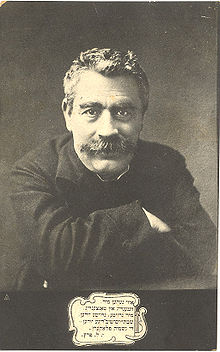
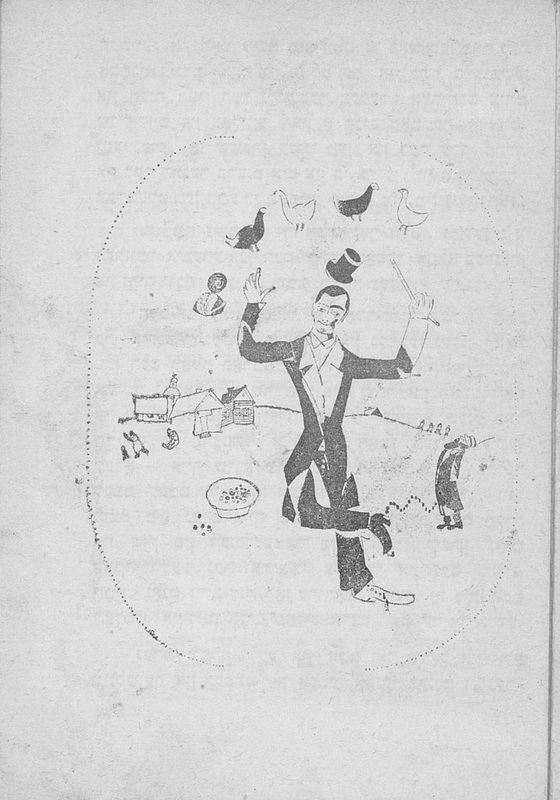
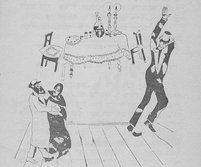
 RSS Feed
RSS Feed
